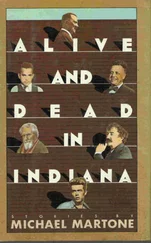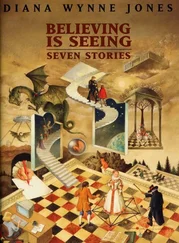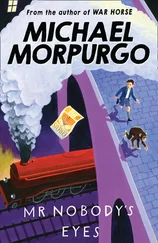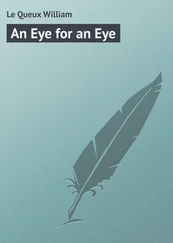Michael Martone - Seeing Eye
Здесь есть возможность читать онлайн «Michael Martone - Seeing Eye» весь текст электронной книги совершенно бесплатно (целиком полную версию без сокращений). В некоторых случаях можно слушать аудио, скачать через торрент в формате fb2 и присутствует краткое содержание. Год выпуска: 2013, Издательство: Dzanc Books, Жанр: Современная проза, на английском языке. Описание произведения, (предисловие) а так же отзывы посетителей доступны на портале библиотеки ЛибКат.
- Название:Seeing Eye
- Автор:
- Издательство:Dzanc Books
- Жанр:
- Год:2013
- ISBN:нет данных
- Рейтинг книги:5 / 5. Голосов: 1
-
Избранное:Добавить в избранное
- Отзывы:
-
Ваша оценка:
- 100
- 1
- 2
- 3
- 4
- 5
Seeing Eye: краткое содержание, описание и аннотация
Предлагаем к чтению аннотацию, описание, краткое содержание или предисловие (зависит от того, что написал сам автор книги «Seeing Eye»). Если вы не нашли необходимую информацию о книге — напишите в комментариях, мы постараемся отыскать её.
Seeing Eye — читать онлайн бесплатно полную книгу (весь текст) целиком
Ниже представлен текст книги, разбитый по страницам. Система сохранения места последней прочитанной страницы, позволяет с удобством читать онлайн бесплатно книгу «Seeing Eye», без необходимости каждый раз заново искать на чём Вы остановились. Поставьте закладку, и сможете в любой момент перейти на страницу, на которой закончили чтение.
Интервал:
Закладка:
For a while we grew rubber. Then for a long time bananas, but the bananas are all dying now. You do not know this yet in the north. A fungus infests the plantations, staining the leaves of the trees. The plants are all of the same variety, interbred, like us, our white flesh like the flesh of the banana, vulnerable to such things. We collect the toy Spanish horses now, grow a little coffee and broker chocolate, even some cotton. We grow the cashew, too, along with other crops.
My family owned land outside of Atlanta. Sherman slept there, my granddaddy told the children, one night during the siege. Refusing the master bedroom, he pitched a tent in the gardens. Tara, yes, like the movie. The flowers bloomed and the sky turned red with flame. I have never been there. My picture of the mansion comes from the books of the time, little Greek temples surrounded by weeping trees. I think of the Acropolis in Athens, where I have been on business, the white porches and the fluted columns. When I was there, they were restoring the Parthenon, encased in scaffolding, not to the way it looked before the Turks blew it up but to its previous state of decay. It had grown shabby. It had melted like a cake in the heat of the exhaust, the nephos the Greeks call it, the cloud of smoke. I think of the house in Atlanta that way. Still smoldering, always smoldering. The white walls scorched and pocked from countless bullets. Zouaves, who look like Turks, are carrying away the portraits of my forebears and their dogs. The slaves, dazed, attach themselves as contraband to the Union invader.
Now, we sing the old hymns in English still. Here, where we feel in our bones, the seasons in reverse, we grow nostalgic. We have avoided our whole history by leaving the south of the north. We import cases of Coca-Cola from Atlanta for our cotillions in the fall, where I wear the moth-eaten gray and yellow tunic of my great-granddaddy. The ladies, caged in ancient contraptions of whalebone and browning silk, sip from the heavy glass bottles of Coke. The salted peanuts blanch, dissolve in the dregs of the flat black syrup.
We watch the burning of Atlanta every year on television. We know the lines of the movie by heart. The satellite dish is in the nearest grove of our dying banana trees. The rotting leaves collect in its shallow palm, breaking up reception. On our screens, the scratchy snow is an image of the mosaic disease infecting our dying banana trees. Today on CNN, through bursts of static, we watched the pictures of North American helicopters settling in our own jungles like falling leaves. The guardia set fire to the bales of coca. Then we looked out of our windows and saw the coiling trunks of the new forest of smoke, growing on the slopes of the blue hills beyond. And then you came to take us back with you.
Listen, no place is home but this home for us. You North Americans should know how we feel. To be extraditable. A nation such as yours made up of people who have come from elsewhere, you should know. But you forget, you forget, my friend, the bitter taste of leaving for good. For who has left the garden of North America once they have arrived? Here, we still celebrate the Fourth of July by not noticing its passing, still mourning the fall of Vicksburg long ago. We Southerners are one example. We left and never thought to go back. And there is the colony of free black men and women all named Doe, whom we think of as kin, killing each other as we speak in their postage stamp country on the green equatorial shores of western Africa.
Elkhart, There, at the End of the World
The roads are lined with produce stands. There is no cider or ear corn as there would be in the early fall but the feral fruit of midsummer, strawberries and melons. Little is left in the shacks — empty wicker quarts and pecks, fragile chain scales, U-Pick-Em signs. I head toward Elkhart, Indiana, where reed and brass instruments are made. The wind whistles through the car, and I follow a station wagon of migrant workers, tailgate down, leaking the brown exhaust of legs and arms, up from the Lincoln Highway toward Michigan to cherries and tomatoes. I pass the sod farms where the sprinklers stutter and the overhead systems, struts and hoses, walk with water across the turf to the ruled black strips left after the grass is rolled away.
In Elkhart I stop for a train. Somewhere Conn makes clarinets and trumpets and the good high school bands have their pick of instruments. The marching bands spend their summers in travel and parades in all the nearby towns.
The train skates for Chicago as parts of houses back up the street behind me. Tractors pulling trailers of modular homes, “Oversize Load” attached to their bumpers. The stalled lead cars and the trailing cars flash their yellow warning lights. We wait and the wind comes up to stir the red pennants and the clear plastic sheets that cover the open half of houses.
Somewhere in the middle of this I think that there is a place that produces a lasting thing. What stays when even the earth gets up and moves away? It is the season when the hot sky touches the ground and draws the water away. The earth cools too quickly and things keep moving toward high wind, tornadoes.
The train squeals by, and across the right-of-way the flat sound of siding dins again from the trailer factories. A bottom to the wind.
A horn. A horn. I move.
Blue Hair
Mister Pepe lowers the clear plastic canopy over my head, flicks a few switches, the engines throb to life. My blue hair, woven into whistling rollers, a snug helmet, bristles with bobby pins. The women on either side of me thumb through their magazines, but I am flying, flying over the checkerboard of friendly fields. The leafy woods below look like mats of hair on a linoleum floor. The engines roar. My wingmen tuck in beside me, our staggered flight piecing together the formation of the whole bomb group. Now the contrails peel off our leading edges. We bank together, coming to the heading that will take us back to the Ruhr. The sky, severely clear. Mister Pepe pokes a puffy cloud with his rat-tail comb. The starched white cliffs of Dover drape away below us. The flashing sliver of shears darts in and out. Nimble pursuit planes. Escorts with belly tanks nipping at our stragglers.
Years ago, I knew the war was over when the bombers left the plants with their aluminum skins unpainted. No need to camouflage the Boeings with that European forest green. It was only a matter of time. Hair, too, a matter of time. My hair would grow back. I watched as wave after wave of silver Forts lumbered over, climbed above the sound, the pounding of their engines rattling the bones in my head, my bare neck chilled by the breeze blowing in off the water.
“The hair, it is dead,” Mister Pepe whispered in my ear. This was later when I first came here. He rinsed my hair of color, the tarnished yellow coiling down the drain. He had me peer into a microscope in the back room of his salon. Curling in behind me, he tweezed the knobs on the machine. I saw the shaft of the hair he had plucked from my scalp rip apart then reassemble, watched as my sight dove right through the splitting hair, my vision melting then turning hard.
“There,” I said when it came into view, kinked and barked like a tree limb, blue as ice.
“Let me see,” Mister Pepe said, wedging in to look. “It is damaged, no? The overtreated hair. The frazzled ends. You need my help, yes?”
And years before that the general had said, “You cannot tell anyone why you cut your hair.” I was a young girl in Seattle. My parents stood in the doorway of our kitchen hugging each other as they watched the WAC snip a few locks. She held them up to the light, then draped the strands across the outstretched arms of a warrant officer. He slid the hair through his fingers, stretched it out straight, and lowered it into a box like the one florists use for long-stemmed roses.
Читать дальшеИнтервал:
Закладка:
Похожие книги на «Seeing Eye»
Представляем Вашему вниманию похожие книги на «Seeing Eye» списком для выбора. Мы отобрали схожую по названию и смыслу литературу в надежде предоставить читателям больше вариантов отыскать новые, интересные, ещё непрочитанные произведения.
Обсуждение, отзывы о книге «Seeing Eye» и просто собственные мнения читателей. Оставьте ваши комментарии, напишите, что Вы думаете о произведении, его смысле или главных героях. Укажите что конкретно понравилось, а что нет, и почему Вы так считаете.












